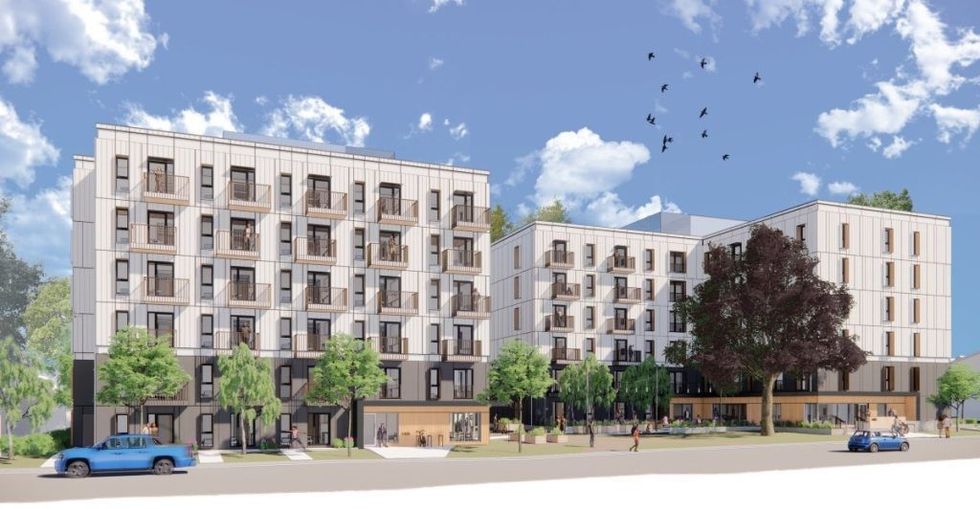This rising cost of residential construction is hurting virtually everyone in the building industry, and the federal government is no exception, cutting into the Canada Mortgage and Housing Corporation's (CMHC) ability to provide affordable housing.
This is according to a new report published by the Office of the Parliamentary Budget Officer (PBO) on Thursday, providing an update on the spending of the CMHC and the results of its National Housing Strategy.
"While federal investments in addressing affordable housing and homelessness have increased, so too has the cost of residential construction, reducing the real purchasing power of federal spending," said Parliamentary Budget Officer Yves Giroux.
In 2017, the CMHC introduced the National Housing Strategy with a projected $82B commitment, spread across 10 years, to address housing affordability across Canada.
Taking into account recent budget updates and economic statements, the PBO is now estimating that total National Housing Strategy spending will surpass $89B -- $7B more than the CMHC's initial plan. Of that, $45.9B (51%) comes in the form of budgetary spending. This includes $13.6B for pre-existing programs, $24.5B in other budgetary spending prior to Budget 2022, and, $7.8B (9%) from newly-announced programs in Budget 2022 and the 2022 Fall Economic Statement.
Another $35.8B (40%) of that spending is dedicated to new and existing loan authorities. The final $7.7B (9%) is for provincial-territorial spending in the form of cost matching.
Notably, the PBO says its updated spending figure also includes planned spending for 2028-29, one year beyond the National Housing Strategy, in order to reflect the spending announcements for programs within the Strategy, such as the Rapid Housing Initiative.
The PBO did not provide specific data about the effect of rising construction costs, but data published by Statistics Canada earlier this month reaffirms the PBO's conclusion that the federal government's buying power has been reduced.
Statistics Canada, based on a composite price index that includes 11 major Census Metropolitan Areas around the country, found that residential construction costs increased by 19.1% in 2022 -- the highest year-over-year increase since the index was introduced in 2017. Increases that were attributed to the costs of concrete, metal fabrications, wood, plastics, and equipment, all inflating at varying degrees.
READ: Red Tape and Rising Rates Push Coromandel Properties to Seek Creditor Protection
CMHC Shortcomings
The PBO -- and various other recent reports -- also identified several other shortcomings of the CMHC that go beyond increased spending, all of which were well within CMHC's control.
The National Housing Strategy was created with the intention of creating more affordable housing, but the PBO found that the CMHC uses different definitions of "affordable" across its different programs, rather than one standard definition.
What the definitions have in common, however, is that each of them "can lead to the construction of units presented as 'affordable,' but which in reality may require households to devote more than 30% of their income to housing" -- the traditional threshold that makes housing affordable.

That same problem of varying definitions was identified by the Auditor General of Canada in a November report. Like the PBO, the Auditor General also reached the conclusion that the housing units created via the National Housing Strategy were not serving their intended purpose.
"We also found that rental housing units approved under the National Housing Co‑Investment Fund that the Corporation considered affordable were often unaffordable for low-income households, many of which belong to vulnerable groups prioritized by the strategy," the Auditor General said.
Additionally, the Auditor General also faulted the CMHC for not properly tracking the results of its funding.
"For its part, the CMHC, as the lead for the National Housing Strategy, spent about $4.5B and committed about $9B but did not know who was benefiting from its initiatives," the Auditor General said. "This was because the corporation did not measure the changes in housing outcomes for priority vulnerable groups, including people experiencing homelessness."
Yet another shortcoming was uncovered in January, when the CMHC responded to a member of Parliament's written question, submitted in November. In its response, the CMHC admitted that a majority of the units it approved under the Rapid Housing Initiative have not yet been constructed, with numerous projects delayed as a result of factors like supply chain disruptions and -- once again -- rising construction costs.





















